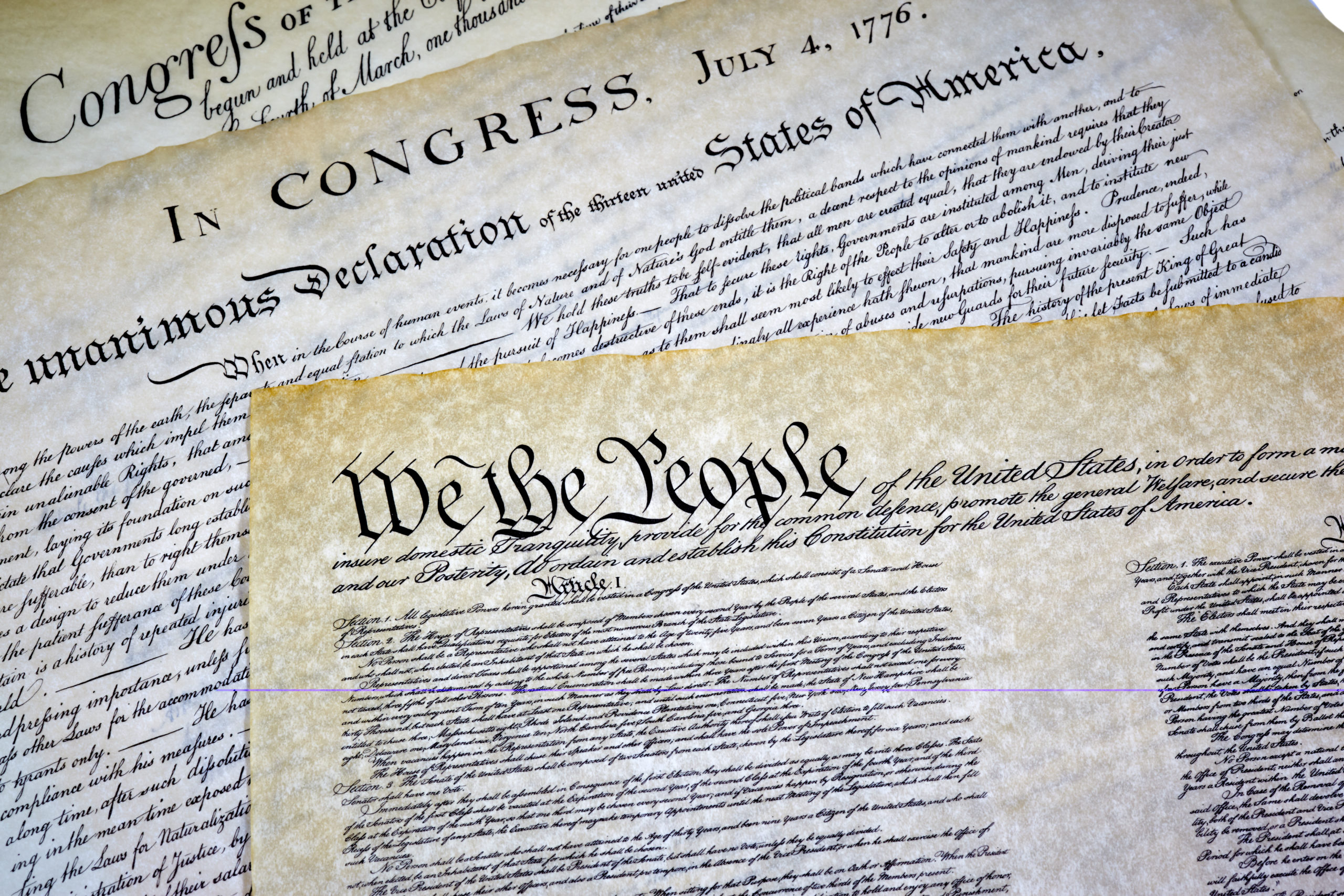

RECOMMENDED READING
Anyone who cannot stand the phrase, “Actually, America is a republic,” had best stop reading now. This post is not for you. Except ye be converted, and become as little children, delighted with hearing things again and again, you had better move along and let me preach to the choir. I’m not actually going to repeat the phrase, but it is the essence of the thing.
Teacher’s pets across the nation got mad online at Sen. Mike Lee (R., Utah) last Thursday, when in a tweet he observed of the American experiment: “Democracy isn’t the objective; liberty, peace, and prospefity [sic] are. We want the human condition to flourish. Rank democracy can thwart that.” It is not a perfect tweet, by any means. There’s the typo, to start, which suggests with its out-of-place f an old-fashioned block printer’s lisp, a “long s” replacing an r. And “the human condition” is a bit ambiguous, but more on that later. The tweet is not “fascism,” though.
Reactions to the statement were only saved by being insincere political jabs, because insofar as any responses represented real reflection and applied thought they suggested a collective wattage so low you couldn’t decorate a Christmas tree with all those bulbs, let alone shed any light on an issue. One trusts many of them were playing dumb on purpose, for the benefit of a public they think very lowly of. Accusing Michael Shumway Lee of being a fascist is a bit like trying to magnetize zinc: you should know better, and the charge won’t stick.
The claims implicit or explicit in the condemnation of the senator’s tweet were threefold: one, that democracy is the objective; two, that liberty, peace, and prosperity aren’t; and, three, that “rank democracy” can’t thwart anything good. This is to say, to put the smartest most charitable spin on it, those who were accusing Lee of fascism or trending toward tyranny believe the maintenance of a regime they call “democracy” is the end of politics, for, presumably, it allows “the human condition to flourish.”
Being an American opposed to what Lee had to say is a bit troublesome, though, since the gist of it is straight out of the Declaration of Independence. A refresher:
We hold these truths to be self-evident, that all men are created equal, that they are endowed by their Creator with certain unalienable rights, that among these are life, liberty, and the pursuit of happiness. That, to secure these rights, governments are instituted among men, deriving their just powers from the consent of the governed. That, whenever any form of government becomes destructive of these ends, it is the right of the people to alter or to abolish it, and to institute new government, laying its foundation on such principles, and organizing its powers in such form, as to them shall seem most likely to effect their safety and happiness.
Let’s translate Sen. Lee’s tweet into the language of the Declaration.
Lee wrote, “Democracy isn’t the objective,” and Jefferson wrote, “To secure these rights, governments are instituted among men.” Rights are the objective, apparently, and forms of government, such as democracy, are the means to this end.
What are these rights, that appear to be the objective of political life? Lee: “liberty, peace, and prospefity.” Jefferson: “among these are life, liberty, and the pursuit of happiness.” The relationship here is not difficult.
Now Lee says that “We want the human condition to flourish.” This is not exactly clear language, but it seems the Declaration can provide some insight, for this most-famous paragraph begins with an account of the fundamental status of human beings: “We hold these truths to be self-evident, that all men are created equal, that they are endowed by their Creator with certain unalienable rights.”
Finally, Lee wrote that “Rank democracy can thwart” this flourishing of human persons. These are fighting words, for democracy is good, right? But Jefferson, too, acknowledges that the goodness of any political arrangement depends on its relationship to the real objectives of political life, when he wrote, “whenever any form of government becomes destructive of these ends, it is the right of the people to alter or to abolish it, and to institute new government, laying its foundation on such principles, and organizing its powers in such form, as to them shall seem most likely to effect their safety and happiness.”
Lee and Jefferson appear to be in agreement. But there is one line from the Declaration that does not have a corresponding phrase in Lee’s tweet, and it is this absence from which the main controversy stems. The Declaration of Independence says that “governments are instituted among men, deriving their just powers from the consent of the governed.” For a Republican, and republican, like Lee, the consent of the governed is implicit in the liberty guaranteed by a good form of government; the consent of the governed is consent to be governed—the endorsement of any particular arrangement as being conducive to the protection of unalienable rights and thus to flourishing. Democrats, however, advocate an enthusiastic consent of participation. “Consent of the governed” is, to them, democracy in action, so that democracy has become the hinge on which all the rest of it hangs.
All political action—and speech is political action, the preponderant one in our civilization—is guided by thought of better and worse. That is, it is directed toward the good, especially the good life or the good society, guided by prudence. What we have here is a fight over the purpose of government and so a fight over opinions about the purpose of human beings. The senator presumably has some idea of what the “human condition”—an infelicitous wording, since that’s usually a negative reference to sinful fallenness or existential thrownness—looks like when it’s flourishing. So, too, do the dim bulbs condemning him.
But their fixation on the terms “democracy” and “fascism,” so prevalent to our public “debates,” does not mean they are working with fixed definitions. What we have is misology, the destruction of moral discourse. Instead of deliberation over the good itself, or justice itself, we play a power game with terms redefined at will by political elites: “democracy is what I like, fascism what I dislike.” To invoke and monopolize “democracy” as equivalent to the “consent of the governed” is in a sense to cheat; it has had incalculable effects on our civic life, outlawing most of our country’s past and attempting to outlaw many in the present.
Recommended Reading
The Climate Crisis Is No Excuse for Backsliding on Democracy
For progressives, the US Supreme Court’s EPA ruling should have been a teachable moment, argues American Compass executive director Oren Cass.
Jonah Goldberg Takes On Public Policy Stuff
Jonah Goldberg, Cliff Asness Chair in Applied Liberty at the American Enterprise Institute, had a lot to say about American Compass on a recent podcast.
Media After Trump
There can be no doubt that Trump gave the press the back of his hand. His refusal to kowtow to upscale media brands offended the vanity of high-level reporters, editors, Read more…












